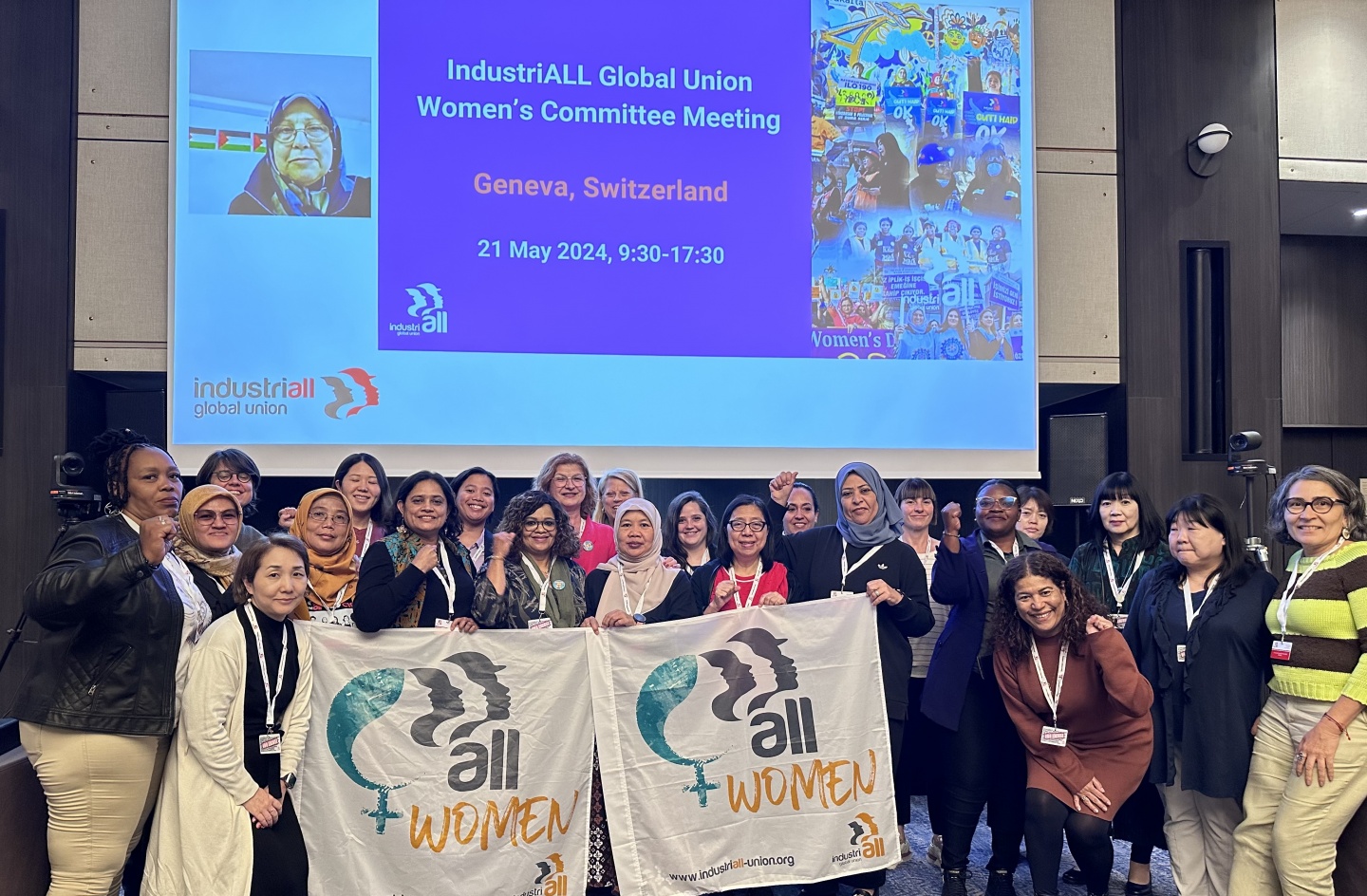23 May, 2024Gender equality achievements, the impact of AI on women workers and strengthening young women’s participation and representation in IndustriALL were agenda items at IndustriALL’s women committee meeting in Geneva on 21 May.
In his opening address IndustriALL general secretary, Atle Høie, emphasized the importance of the implementation, training and understanding of IndustriALL’s policy on GBVH, misgogyny and sexism.
“Women play an important role in our fight for democracy and societal development. Your discussions here today should influence the direction of our organization. It’s not only important to make sure that we mitigate the negative impacts of any global developments, but also make sure it has a positive influence on our movement. My role here today is to listen to you and take your recommendations to the excutive committee meeting,”
said Atle Høie.
Christina Olivier, IndustriALL assistant general secretary, highlighted achievements for women, like IndustriALL’s first female president, countries ratifying ILO Convention 190, extended parental leave and new pay equity legislation.
“Despite this great progress, gender equality remains a challenge, women workers continue to face discrimination and unequal power relations and more needs to be done to address the persistent gender gaps,”
said Christina Olivier.
Amid a general agreement that the road ahead is long, women leaders from Australia and Brazil shared their success on trade union campaigns that address the gender pay gap.
Australia’s new legislation on extended Paid Parental Leave (PPL) for families means that parental leave will increase from 20 weeks to 26 weeks.
In Brazil, new legislation guaranteeing equal pay for men and women sets out measures to promote and implement diversity and inclusion programmes in the workplace. It also requires companies with 100 or more employees to provide transparent half-yearly reports on pay and remuneration criteria.
Discussions on AI revealed that fewer women, globally, worked in AI and that women are often not part of the workforce developing these systems. The women’s committee concluded that a gender transformative approach is necessary. Together with the gender equality task force, the women’s committee will develop policies and guidelines ensuring the inclusion of women.
“All policies must be gender transformative. When it comes to AI, IndustriALL and affiliates need to be part of debates and work on regulations and policies prohibiting abuse that will further disadvantage women. Trade unions should influence the development of AI and ensure that the technology is used to narrow gender equality gaps and other forms of discrimination,”
said Armelle Seby, IndustriALL gender director.
A way to address the gender pay gap is through collective bargaining. Maike Niggermann from IndustriALL European Trade Union shared details on a project called bargaining for equality. She presented examples on how unions include gender clauses in agreements to close gender gaps, ensuring that every agreement has at least one equality objective, high fines to employers who fail to act when it comes to sexual harassment and paid leave for GBVH victims.
Menopause has a significant impact on the world of work as women risk being excluded from the workforce due to their symptoms. Alison Spencer shared how Unite the Union focused on menapausal education for the workforce and how small adjustments can ensure women’s inclusion, like opening windows, flexibility in shifts, allowing women more breaks, and that existing health and safety legislation could assist with these adjustments, like breathable PPE.
In order for unions to stay relevant and grow it is essential that young women workers be included in these kinds of platforms. Youth representatives Maria Bange from Tanzania Union of Industrial and Commercial Workers (TUICO), Laya Borjal Ferrer from Associated Labour Unions (ALU-TUCP) in Philippeans, and Agnes Ama Agamasu from Ghana Mineworkers shared their experiences as young women workers and leaders in their unions, indicating that it is challenging but with the support of strong women mentors at IndustriALL they have been able to develop in their unions, participate in structures, and see changes.
“This women’s committee meeting was productive. It is important for us to discuss and strategize on issues that affect us women. We need these platforms to raise topics like menopause, AI and collective bargaining. If we don’t work on strategies we will be left behind, the struggle for gender equality and women rights never end. The fight must continue,”
said Ilvana Smajlovic IndustriALL women’s committee co-chair.
